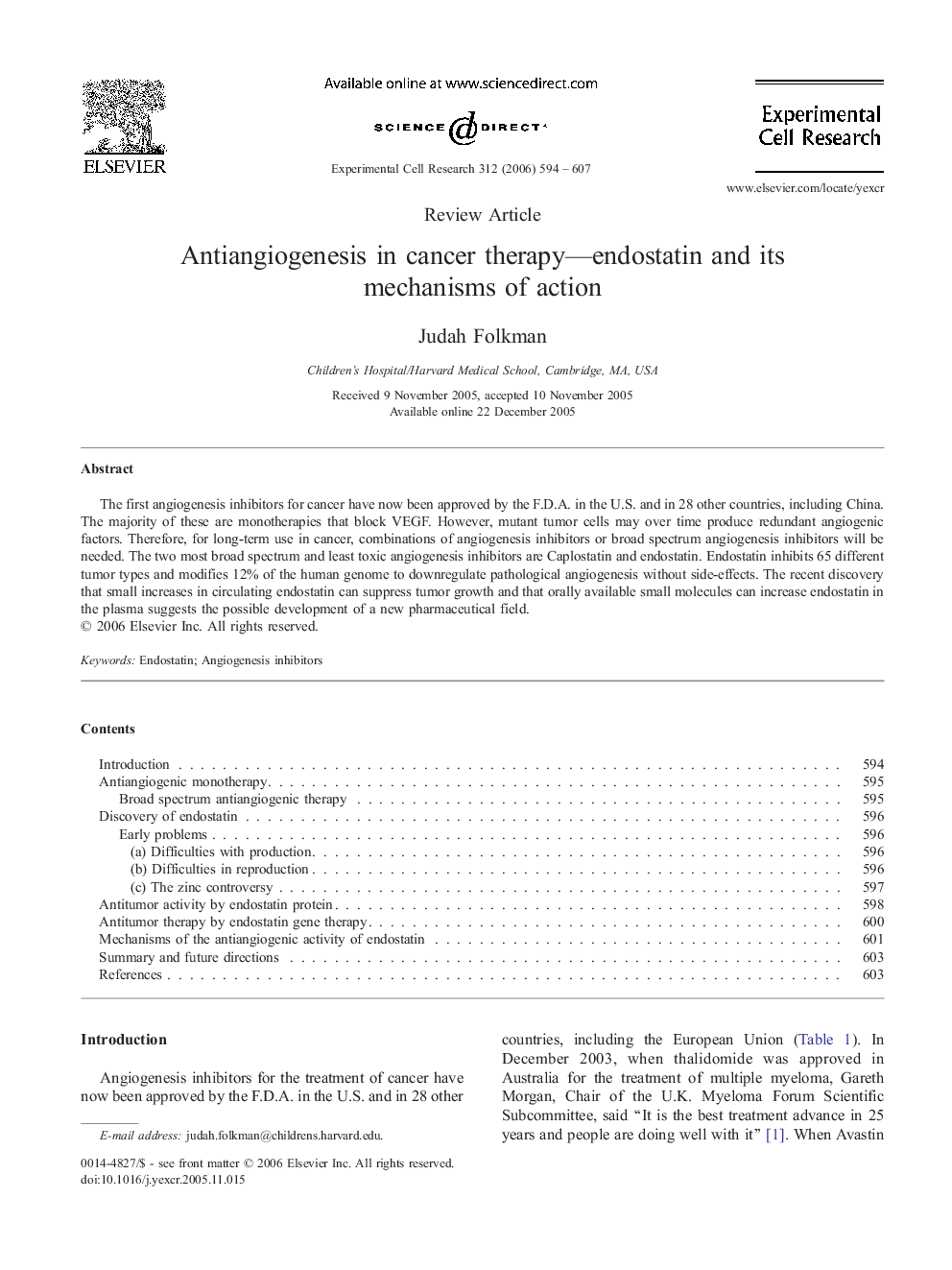| Article ID | Journal | Published Year | Pages | File Type |
|---|---|---|---|---|
| 2133099 | Experimental Cell Research | 2006 | 14 Pages |
The first angiogenesis inhibitors for cancer have now been approved by the F.D.A. in the U.S. and in 28 other countries, including China. The majority of these are monotherapies that block VEGF. However, mutant tumor cells may over time produce redundant angiogenic factors. Therefore, for long-term use in cancer, combinations of angiogenesis inhibitors or broad spectrum angiogenesis inhibitors will be needed. The two most broad spectrum and least toxic angiogenesis inhibitors are Caplostatin and endostatin. Endostatin inhibits 65 different tumor types and modifies 12% of the human genome to downregulate pathological angiogenesis without side-effects. The recent discovery that small increases in circulating endostatin can suppress tumor growth and that orally available small molecules can increase endostatin in the plasma suggests the possible development of a new pharmaceutical field.
